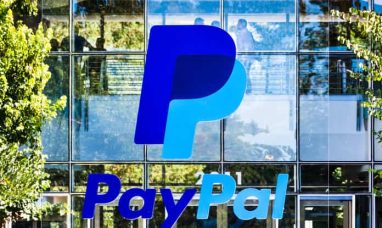The American breakfast champion will soon split.
Kellogg announced on Tuesday that it would split its activities into three separate companies, with a unique stock market listing for each of them.
A Split to Improve Performance
The history of Kellogg, an iconic brand for millions of homes, dates back to 1894, when the American industrialist W.K. Kellogg created the “Corn Flakes” company before opening, in 1906, the “Battle Creek Toasted Corn Flake Company”, which was later renamed the “Kellogg Company”. Kellogg became known worldwide for its breakfast cereals.
Active in 180 countries, the agri-food giant produces, in addition to its famous cereals, Pringles potato chips, Cheez-It cheese crackers, Pop-Tarts filled pastries and Eggo frozen waffles.
It also owns plant-based brands, including MorningStar Farms, Gardenburger and Kashi.
Its revenue was $14.2 billion in 2021 and its annual profit is approximately $1.8 billion
The snacks and cereal giant Kellogg announced on Tuesday that it will split into three independent companies, as part of the US company’s latest overhaul to simplify its structure and focus on expanding its snacks business.
“Kellogg has been on a successful journey of transformation to enhance performance and increase long-term shareowner value,” said Steve Cahillane, Kellogg Company’s chairman and chief executive officer, in a statement announcing the company’s plans. “This has included re-shaping our portfolio, and today’s announcement is the next step in that transformation.”
The new structure will include a company that will be handling international sales of snacks, cereals and instant noodles as well as frozen breakfasts in North America, a company focused on the sale of cereals in the United States, Canada and the Caribbean and finally an entity specializing in the sale of plant-based products.
The new companies will be called “Global Snacking Co.”, “North America Cereal Co.” and “Plant Co.”, respectively, Kellogg said, noting that these were temporary names.
The activities of the internationally-oriented company represented last year more than 80% of the group’s revenue ($11.4 billion), those of the North American division approximately 17% ($2.4 billion) while meat alternatives total less than 3% of Kellogg’s revenue, or $340 million.
The global snacking company will be made up of well-known brands such as Pringles, Cheez-It, Pop-Tarts and Kellogg’s Rice Krispies Treats. Last year, the snack business’ sales also came from select cereal brands as well as frozen breakfast brands and the Eggo brand.
The cereal company, which earned $2.4 billion in revenue last year from operations in the United States, Canada and the Caribbean, sells brands such as Frosted Flakes, Froot Loops, Mini-Wheats and Special K.
Its North American grain unit and plant-based business will be anchored by the MorningStar Farms brand, which offers a range of plant-based items such as chicken nuggets and sausages. The segment will be spun off to its shareholders in a tax-free transaction.
Kellogg is targeting the end of 2023 to finalize the spinoff of North America Cereal Co. and Plant Co. from the main group, provided it gets approval from US regulators. It is also exploring strategic options for its plant-based business, including a possible sale.
The group said the companies would retain their headquarters. The cereal sales company in North America and the plant products sales company will thus be based in Battle Creek, Michigan. The globally oriented company will be headquartered in Chicago, Illinois, with a campus in Battle Creek.
Kellogg’s stock, listed on the New York Stock Exchange, rose about 6% in electronic trading before the opening of Wall Street.
Significant Potential
Kellogg CEO Steve Cahillane said in a statement: “These businesses all have significant standalone potential, and an enhanced focus will enable them to better direct their resources toward their distinct strategic priorities. In turn, each business is expected to create more value for all stakeholders, and each is well positioned to build a new era of innovation and growth.”
Most packaged food companies, even those that previously had little presence in the segment, (such as Hershey Co and Mondelez International Inc) are doubling their business through billion-dollar acquisitions.
Kellogg’s decision to split follows similar announcements from major US companies such as the pharmaceutical group Johnson & Johnson and the conglomerate General Electric Co over the past year. These moves underscore how nimble big companies need to be in their fight for market share.
Companies often separate in an attempt to get rid of a so-called conglomerate discount, where the valuation is less than the “sum of the parts” (if the businesses that make them up are managed separately).
Kellog has focused on its global snacks portfolio in recent years as US cereal sales have declined as more Americans turn to snacks and rely on fast food chains for breakfast.
Breaking up the maker of Pringles, Cheez-It and Pop-Tarts would create a global snacks business that would also house its international cereal and noodle brands and its North American frozen breakfast division.
The snacks business, which will be the largest after the split, would be led by current boss Cahillane.
“(The split) provides a path for struggling U.S. cereal to regain focus. Also a path to sell MorningStar Farms,” Credit Suisse analyst Robert Moskow said.
Featured Image: DepositPhotos © everythingposs








